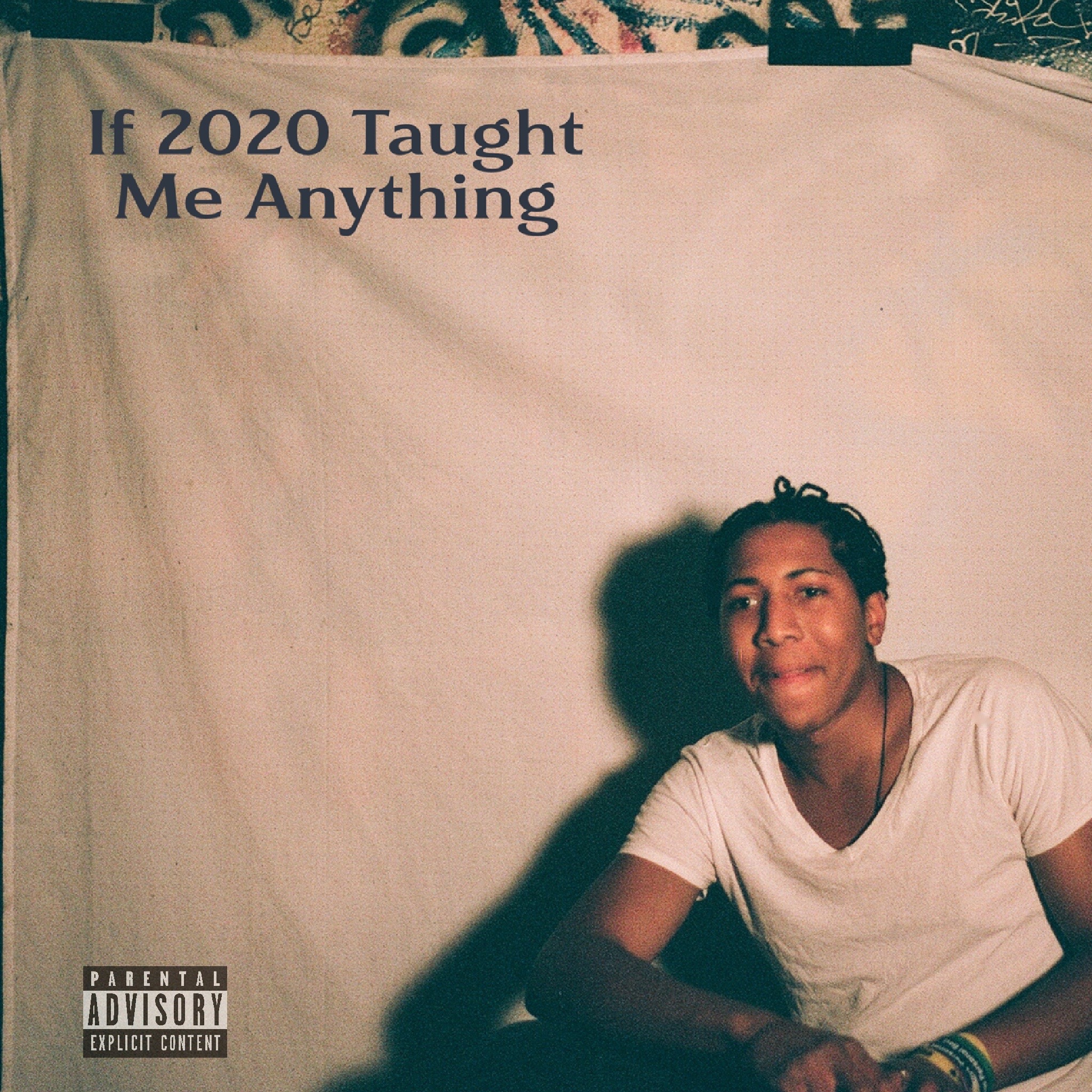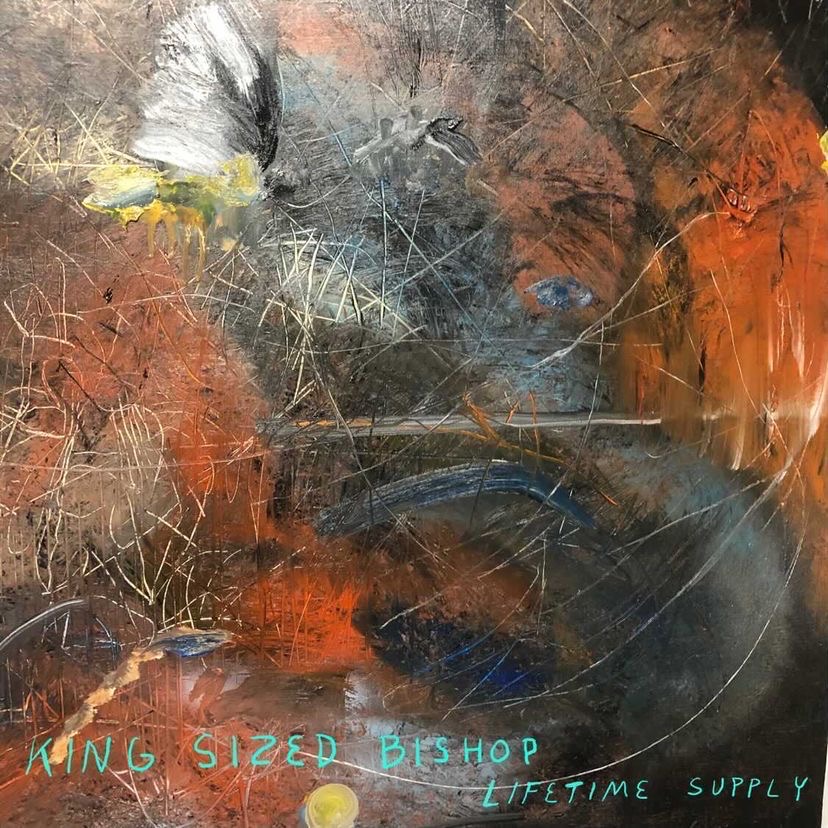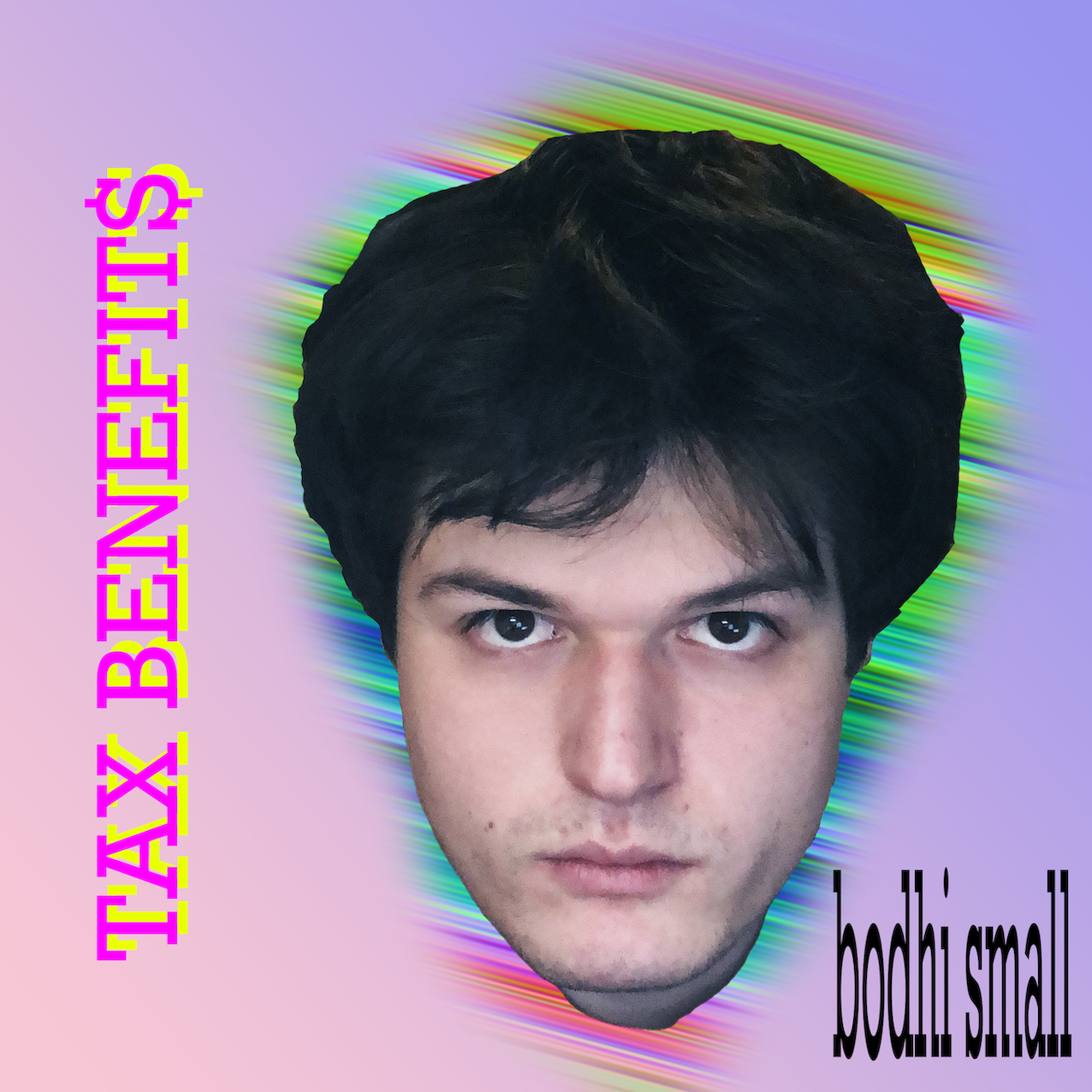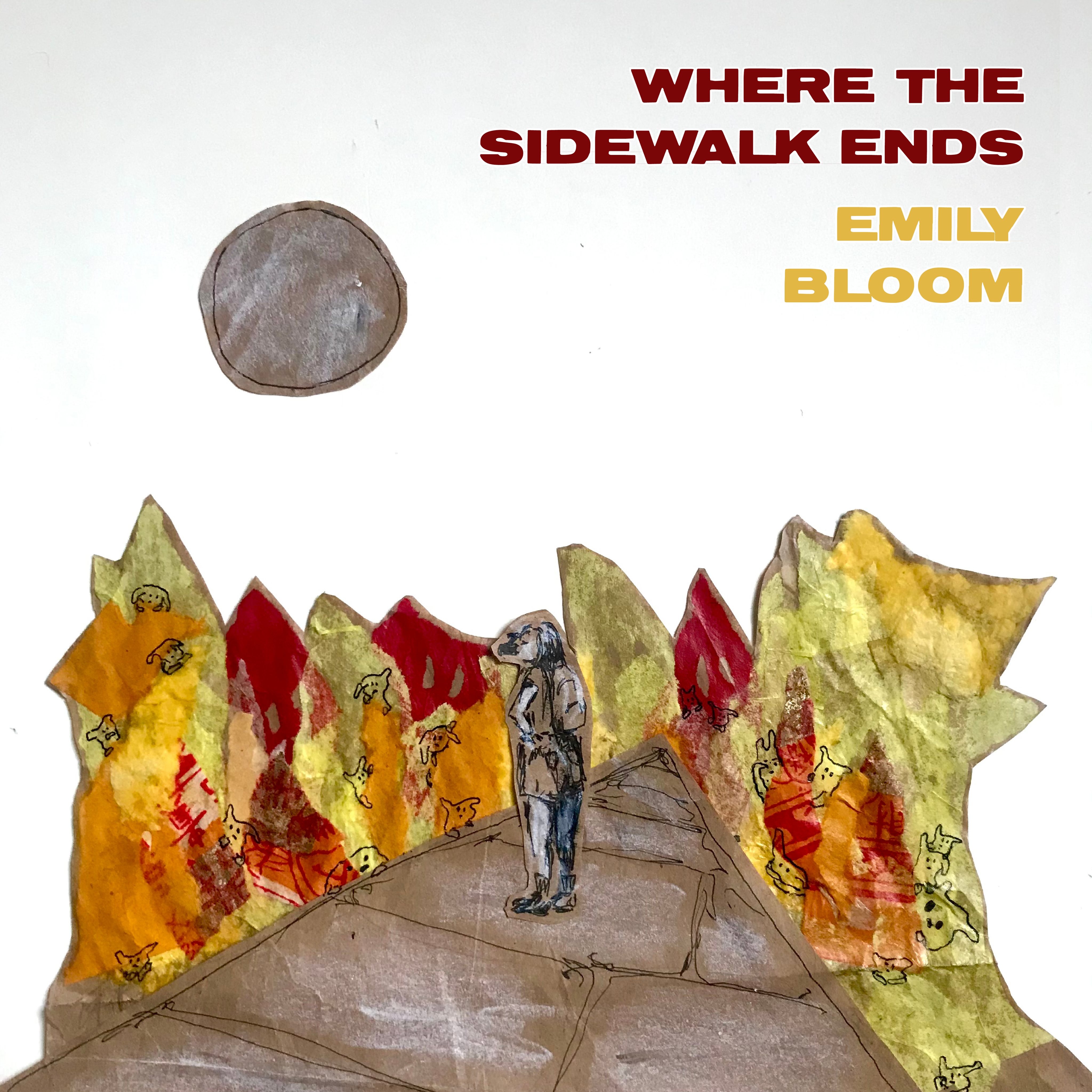While some of us went skiing, baked new types of bread, spent time with family, applied to summer internships, or watched copious amounts of new Netflix shows over winter break, some members of the Wesleyan student community spent their time off creating and producing new music. To keep you up to date with the latest music on campus, we put together a wrap-up of releases from eight of the University’s talented artists and bands.
“In The Way That I Should” by Audrey Mills and “If 2020 Taught Me Anything” by Leevon Matthews

Audrey Mills ’23 and Leevon Matthews ’23 combined styles of indie rock and hip hop with Mills’ latest single “In The Way That I Should,” a dreamy mix of piano and electronic beats with echoey vocals from Mills and melodic rhymes from Matthews. Matthews features Mills in the song “NuNu” in his latest album “If 2020 Taught Me Anything.”
“Any genre feels wrong,” noted Mills, cringing at the idea of labeling her music indie rock. “I guess I’m just drawn to a blend of things.”
Mills’ main inspiration for writing songs is her emotions. Her songs all start from a single melody, usually one that comes to her in the shower.
“It is kind of this phenomenon that I’m trying to gain more control over and to do more intentionally,” she said.
Matthews leans further toward hip hop, taking inspiration from artists such as Juice Wrld, Kendrick Lamar, and Tyler, The Creator. It was Juice Wrld’s December 2019 passing that prompted him to start releasing music.
“I felt like I should,” Matthews reflected. “I was just like, ‘I can do it, so I’m gonna try to just write.’”

Another major inspiration for Matthews was seeing his friends in high school in Chicago make their own music. “Just seeing somebody you know be able to do it and make a song you like, I think that’s a big deal, because it gives you that feeling that you want to give to someone else.”
Matthews said that the goal of his latest album was to sharpen his sound. “I’m trying to narrow down my content and realize what my music needs to mean and who it needs to impact and who it needs to uplift.” Both Mills and Matthews stressed the importance of releasing music even when it is not perfect.
“There will inevitably be people who connect with your music no matter what qualms you have with it,” said Mills. The two are still making music and especially excited about collaborating with other artists on campus.
“I want to try to get people to uplift each other a little more,” said Matthews.
Mills echoed Matthews’ sentiment.
“People here are so talented and we can all just start making a bunch of stuff together,” said Mills. “Just email me, my email is in the Wesleyan system!”
Mills’ song “In The Way That I Should” is currently available on all platforms, and Matthews’ album “If 2020 Taught Me Anything” will be released on February 12th on Spotify.
“Lifetime Supply” by King Sized Bishop

King Sized Bishop is a rock-inspired group made up of three members: Bram Silbert ’23 and his friends Jacob Shneiderman and Ezra Hecht. Over break, the three completed their first album “Lifetime Supply,” which consists of songs featuring mostly guitars, bass, and drums.
The band states that their influences include Black Sabbath, the Grateful Dead, Frank Zappa, and Squarepusher.
“We sort of inhabit a classic rock kind of sound,” said Silbert. “But we try to take it a little bit further in terms of musical complexity.”
The members of King Sized Bishop met when they were in fifth grade, and have been making music together for years.
“We’ve been playing together for a really long time,” Silbert said. “At this point we have something unique to offer because of that.”
Shneiderman and Bram even lived together for a couple of months last spring when COVID-19 escalated.
“We were still busy with school and stuff,” said Shneiderman. “We would just write, you know, some little riffs and songs.”
Silbert’s advice to emerging artists is to find people to work with that you can connect with.
“I feel like one of the reasons that our band has lasted a long time is because we were friends because we were bandmates,” Silbert said. “There’s something beyond just music.”
“Lifetime Supply” will be released on all streaming platforms February 19th.
“i don’t like you” by Iris Sackman ’22

From singing to playing piano to trombone to guitar, music has always been a big part of Sackman’s life. Just this past break, Sackman released their latest song “i don’t like you,” an alternative, grungy, pop-influenced piece.
“With a lot of my recorded music, it’s really not similar to what I play live,” said Sackman.
They are both an individual artist as well as part of the band Iris Olympia & the Girlfriends with Sam Eaton ’22, Max Shatan ’22, and Zander Medrano ’22, but COVID has kept them from being able to record with the rest of their group.
“They definitely add a lot to my music,” Sackman said of their bandmates.
Sackman started putting their music on iTunes and other streaming services when they came to Wesleyan and saw other student artists as examples.
“I really started putting music on like iTunes and stuff when I got to college,” Sackman said. “I noticed that a lot of the artists on campus were doing that and it was easier for me to direct people who I knew to my songs. I also feel like it gives me a little bit of separation between the music…versus like something that’s more produced for a streaming platform.”
When asked what advice they have for new musicians, Sackman urges being comfortable with producing bad songs and having fun.
“There’s nothing wrong with [having fun] because you’re going to find some gems,” they said. “Make sure you’re enjoying the process. If you want to share your music with the world, that’s great, but you don’t have to share everything you create with somebody.”
“Tax Benefits” by Bodhi Small

Bodhi Small ’22 describes their music as “Hyperpop.”
“It’s not really a genre,” they said. “It’s just fun and it’s new, and it has so much energy behind it in so many directions…pop but a little weird. Weird but a little pop.”
Small has released many projects over the years, but over break, they produced “Tax Benefits,” a song they consider to be still a work in progress.
“I don’t even think it’s done,” they said. “I started it last semester and then I forgot about it…I was going to have a lot more sections but they were all bad…. At some point I was like, ‘you know what, I’m going to release it,’ so I made an Instagram story like ‘I’m going to release this song today,’ and then by the point I was done working on it that day I knew it needed more work but I didn’t want to do it. If I wanna do more work on it, I can just take it down and put it up again. So, I’m just gonna put it out, why not?”
After working on their second album for almost two years, Small stopped creating music for a while. It was a final project for one of their classes that got them back into it.
“I decided to do a podcast because I didn’t feel like doing academic writing at that moment,” they said. “But I was sick when I recorded, so it sounded awful. I was doing that in Garageband and I was like ‘oh yeah, that was fun, I’ll get back into this’ and then I just kept going.”
Small’s song “Tax Benefits” can be found on Spotify. Check out their other work here .
“Before the Sky Is Dark” by Ryan Dirgins ’24

During winter break, Dirgins released his album “Before the Sky Is Dark,” which celebrates the human experience even in its current state of disillusionment and hardship. His music is driven by the concept of interpersonal connections and their predestined rough patches, specifically in long-distance relationships. As we grow, so do our connections to loved ones, which is the backbone of Dirgins’ story.
“My favorite song on the album is ‘River.’ It’s a song I hope people connect to, especially with everything that’s happening in the world. It’s about staying indoors all day, feeling hopeless, and then getting the courage to go outside and seeing how beautiful everything is,” he explains.
Expanding on the theme of passing time, Dirgins correlates his four songs with the four seasons. By crafting his work in this thoughtful way, listeners are invited to unlock forgotten memories; people tend to associate emotions with seasons—something Dirgins articulates successfully.
“The song ‘Day by Day’ is fall themed. ‘Fredrick’ is winter-themed, ‘Spellbound’ is spring, and the final song, ‘River,’ is summer.”
While “Day by Day” was originally going to be released as a single, Dirgins realized he had more to say. And thus, the folk album was born.
Screen-Glo Records Co-Founded by Eric William Lindheim-Marx ’21 and Chris Bryan ’21

Over break, Lindheim-Marx and Bryan co-founded a record label titled Screen-Glo Records. Under this new record label, Lindhein-Marx contributed to two songs under the first album, “Screen-Glo Records: Chops & Flops Vol. 1,” which was released in January. If that wasn’t enough, he also released his own single titled “Green transmission ⅓” and a remix titled “satisfaction érèbe2020 terrormix.”
Lindhein-Marx began playing guitar in fifth grade, but didn’t start expressing himself through music until he arrived at Wesleyan, where met people who encouraged him to explore his creative process.
“Part of the reason why I really enjoy making music is the experimental nature of it and that I don’t really have a plan with what I’m going to do. I open my workspace and I experiment until I make something that I want to hear again.”
Lindheim-Marx describes his enjoyment of abstract and ambient music, mostly consisting of industrial and mechanical sounds. He is able to find music even in sounds which may appear like noise to others. This makes for a sound which is original, striking, and earnest.
Some of Lindheim-Marx’s favorite work is sound manipulation on GarageBand. For example, the artist took a 10 second sound recording of a waterfall, electronically maneuvered the sound in different ways, and then synthesized the clips together to make one piece.
He encourages others who may be hesitant to experiment with music.
“It’s daunting, and you’ll come to a point where you realize you can’t do exactly what you thought you wanted. It forces you to adapt and overcome, and use the tools that you have. Use them in ways that they are not supposed to be used to make sounds that interest you.”
“Where the Sidewalk Ends” by Emily Bloom ’23

While music has always been a part of life for Bloom, she discovered her passion for it when she began to write songs of her own.
“I really fell in love with music through writing it and hearing things in my head. It really encouraged me to practice and play more,” Bloom said.
Developing her creative process has been a journey. Bloom reflected that at first, she wrote very sporadically. Often when she would feel overwhelmed, she would sit down to write, and in many instances, finish an entire song.
“The first draft is often the final version because it is the most honest,” Bloom said. “A lot of what writing a song is to me, is encapsulating a very specific moment in time.”
However, for her three singles and upcoming album, “Don’t Mind the Ghosts,” she first attempted to complete everything within a few short weeks.
“I started working on it, and I was like ‘this is way too much and I need to give it the time and space it deserves to breathe,’” she said.
She gave herself time to discover each piece and ended up releasing the first single “Colorado” in September and then “June, Don’t Be Scared” in October.
“I’m really drawn to the fusing of genres,” Bloom said with a smile. “Right now I’ve been really into indie-folk-rock, where those three genres overlap.” As such, the genre of her album varies from song to song, and she wanted the three singles she released beforehand to give her audience a glimpse of that.
Her single “Where the Sidewalk Ends,” which will be the last single she releases before her album, comes out on February 15th on Spotify. Inspired by the poet Shel Silverstein, Bloom describes this upbeat song as being about the current state of our world and having fun at the beginning of the apocalypse.
Sarah Timbie can be reached at stimbie@wesleyan.edu.
Sabrina Ladiwala can be reached at sladiwala@wesleyan.edu.
Abby Glassman can be reached at aglassman@wesleyan.edu.


Leave a Reply